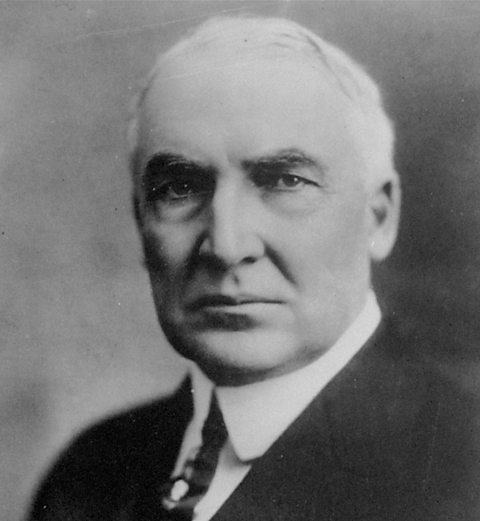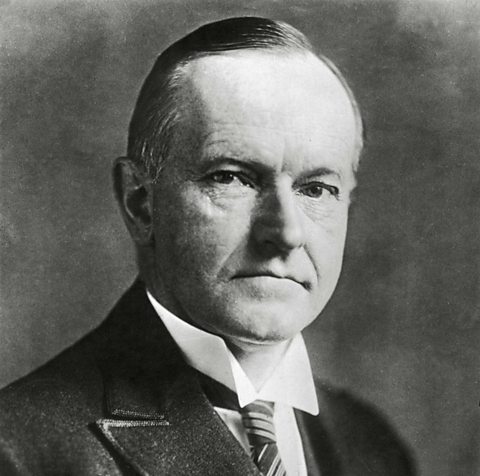The attitude and policies of the Republican presidents

The United States was led by three Republican presidents during the 1920s, namely Warren Harding, Calvin Coolidge and Herbert Hoover.
The policy of these Republican presidents was that government should leave the economy alone – they adopted a laissez-faireTranslated as 'leave well alone' or 'let the people choose'. A government policy of interfering as little as possible in the economy. (free market) policy. Their belief was that big businesses would be free to expand without being held back by the government.
Warren Harding (1921-23)
His promise was a return to normality
. He reduced taxes to give businesses more money to grow and to put more money in the pockets of ordinary Americans. In 1922, he introduced the Fordney-McCumber Tariff ActTaxes were imposed on goods from abroad in order to encourage people to buy American goods. which imposed a tax on goods from foreign countries. This made foreign goods more expensive than domestic goods, and so this encouraged Americans to buy American goods only. The name for this policy was protectionism.
Calvin Coolidge (1923-29)

Business is America's business,
said Calvin Coolidge. He stuck to the same policy as Harding. Although he didn't do much (his nickname was 'Silent Cal'), Americans believed he was a good president because of the strength of the economy. He had a huge respect for businessmen and adhered to the laissez-faire policy. He gave businessmen the freedom to make a profit and become rich.
Even the Wall Street Journal praised this policy: No government ever before, either here nor in any other country, has succeeded in uniting so thoroughly with the business world.
Herbert Hoover (1929-32)

He became president in 1929 following his promise to put a chicken in every cooking pot, and a car in every garage
. Hoover believed in laissez-faire, but also in rugged individualismPersonal liberty and free competition, and the idea that people should be self-reliant.. This meant that people should not depend on the government for help - they should solve their own problems by working harder. Hoover lost the next presidential election in 1932 because of this viewpoint - it was too severe - especially after the Wall Street Crash and Depression.
| President | Key terms |
| Warren Harding (1921-23) | Return to normality, Fordney-McCumber Act, Protectionism |
| Calvin Coolidge (1923-29) | "Business is America's business", laissez-faire |
| Herbert Hoover (1929-32) | Rugged individualism |
| President | Warren Harding (1921-23) |
|---|---|
| Key terms | Return to normality, Fordney-McCumber Act, Protectionism |
| President | Calvin Coolidge (1923-29) |
|---|---|
| Key terms | "Business is America's business", laissez-faire |
| President | Herbert Hoover (1929-32) |
|---|---|
| Key terms | Rugged individualism |